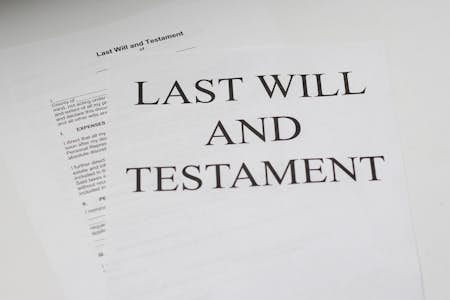Your work arrangements can become more flexible as you get closer to retirement. Many take on odd jobs here and there, winding down their time on the career ladder. After the pandemic, many over-50s didn't always do it out of choice. The economic situation has left many reeling for extra cash.
No matter how you've found yourself in self-employment, you must know the specific rules and regulations. IR35, or the off-payroll working rules, are vital to ensure you pay the right amount of tax and maintain a healthy state benefit record. Navigating the world of tax legislation can be daunting, but it’s not impossible. So, let's clear the fog around IR35 compliance and discover whether you need to be concerned about it.
What is IR35?
The term 'IR35' comes from the press release announcing the legislation in 1999. The government designed the off-payroll working rules to prevent tax avoidance. They aim to determine whether a contractor is genuinely self-employed rather than a 'disguised' employee.
Why is that a problem? Contractors who work through a limited company enjoy tax efficiency. Setting up a company can benefit workers as self-employment gives them flexibility and control over their work. However, contractors usually don't receive the same employee benefits. These include things like holiday and sick pay.
Contractors have occasionally taken advantage of the tax efficiency they enjoy. They appear self-employed even though they actually 'behave' more like an actual employee.
A famous example is the 'Friday rule'. It involves freelancers who work for an end client from Monday to Friday, like regular employees. Yet they run their own limited company, meaning they aren't 'employed' during the weekend. But does their employment end on Friday afternoon? Could they be disguised employees avoiding paying taxes?
Contractors aren't just benefitting themselves, however. Companies don't have to pay employers' National Insurance Contributions or pay employee benefits. Sometimes, employers want employees to work as contractors rather than go through the hoops of hiring them. For workers, this could also mean the loss of employment rights and worse working practices.
The goal of the IR35 is to prevent both employers and employees from bending the rules.
How does IR35 work?
IR35 tests the contract, determining whether it falls:
- 'Inside IR35', meaning the arrangement is similar to employment. HMRC views the contractor as an employee, resulting in income tax and National Insurance obligations.
- 'Outside IR35', which means the contractor is self-employed. It means contractors need to follow self-employment taxation guidelines.
Determining the status can be challenging. The excellent news is HMRC provides a tool to help check the employment status for tax called CEST. The tool shows if IR35 applies to a contract. They also run an IR35 helpline you can call. You can also find similar ways to check employment status for tax on other websites.
The problem with CEST is that it is only sometimes accurate. The check doesn't take mutuality of obligation into account, for example.
Do the off-payroll rules apply to me?
The IR35 rules may affect you if you are a worker providing services through your intermediary to a client. Clients receiving services from a worker through their intermediary and agencies or other suppliers providing workers' services through their intermediary are also affected.
The intermediaries legislation states that as a worker, you may provide your services through:
- A limited company is a personal service company (PSC).
- A partnership.
- Another individual.
If you're employed by an umbrella company, the off-payroll working rules generally don't apply. You also don't need to worry about IR35 if:
- You're already a permanent employee of a business. You're making NI contributions and receiving salary and payroll compensation.
- You're a temporary employee working via a staffing or recruitment agency. You may also provide services directly to a business.
It's vital to note that your IR35 status can differ from contract to contract. If you have other jobs with various employers, one could fall 'inside' and another 'outside'. It is imperative to check each and every contract and not just assume they're all the same.
IR35 checklist to determine compliance
The general rule is if your contract is for services rather than employment, the IR35 rules won't apply. But this can get murky. To determine compliance, you should check if your contract specifically mentions the following principles:
Supervision, direction and control
Essentially, this is about how much your client controls how and when you complete your work. Let's say you have to work at certain times. That could imply you're employed rather than contracted.
Your contract also points towards employment if HMRC finds your deemed employer oversees your work exclusively and gives guidance on how you work.
Contracts are also likely within the scope of IR35 if your client asks you to perform tasks as they see fit. These could be tasks that you haven't specified in your contract.
Substitution
The rules also consider substitution when determining the status. If you can send a substitute to complete the work, your contract would fall outside IR35.
Mutuality of obligation (MOO)
Suppose your employer has an obligation to offer work, and you accept it. In that case, it means there is a mutuality of obligation. It is a crucial test when working out self-employed status.
A simple way to understand it is to ask if your employer is under the obligation to offer you more work, and you're obliged to take it after your current task finishes. If you can complete a job and are not obligated to keep going, your contract will likely fall outside IR35.
Consider also your ability to work with other clients. If doing that is prohibited, your contract indicates that you are employed.
Other IR35 criteria to consider
The above points are the main things to consider when working out your IR35 status. However, other things can also determine your status.
Here are some examples:
- Equipment and whether the client provides it to you. If you don't use any equipment of your own, then you're considered an employee.
- Financial risks associated with the work. As a self-employed contractor, you typically take a degree of financial risk. Any errors you make during your job would be your responsibility.
- The intentions of you and your client. The contract should highlight the relationship between a supplier and a customer and do so in a genuine manner.
- The payment terms. If you don't get paid on a project basis, IR35 might encompass you as self-employed.
If you are deemed an employee based on the factors considered, IR35 will apply.
Before making assumptions about your contracts, using the CEST tool or consulting a professional is important. The examples mentioned above should not be considered as definitive.
IR35 changes - the past and the future
The complexity of the system has left employers and contractors scratching their heads. There have been a few notable legal cases as well.
Before April 2017, individual contractors working in the public sector were responsible for determining their IR35 status. The responsibility shifted from the particular contractor to the public sector agency in April 2017.
In the private sector, contractors were in charge until April 2021. The law changed and made medium-sized and large private sector companies the ones checking the status. Contractors should also receive a Status Determination Statement. The statement will allow them to dispute the decision. Small businesses are exempt. If you work as a small business contractor, you must work out your employment status.
There were further changes planned in the form of repealing specific IR35 reforms. However, Chancellor Jeremy Hunt confirmed he was scrapping the changes in the Emergency Statement in November 2022.
Employee, contractor - does it really matter?
So does all of this matter? In short, yes.
Working as a contractor is often more tax-efficient than working via an umbrella company or as an employee. If you work through a limited company, you can pay corporation tax and claim business costs against your tax bill. You can also avoid making NI contributions by paying yourself through dividends.
If you're deemed to fall under IR35, you may lose these tax advantages and pay a 'deemed payment' of income tax at the end of the tax year. This accounts for any tax deduction or employer NIC that would have been paid. Workers deemed employees can see their net income slashed by up to 25%.
Non-compliance is not something to take lightly, either. The thing to be careful about is that HMRC may look at the IR35 retrospectively. You could end up with a tax bill if you can't show you've operated outside IR35.
You want to ensure you make the most of your salary, especially as you get closer to retirement. Paying unnecessary fees could eat into your pension funds. Tax planning is always a good idea and crucial if you work as self-employed. You can read more about budgeting from our post here.
What to do if you're worried about IR35?
The most considerable criticism towards the rules has come from ambiguity. Even HMRC's record of fighting IR35 cases shows the track record within the case law is patchy. Knowing when you're inside or outside can be tricky and confusing. But you want to avoid brushing it all under the rug, as breaking the rules could cost you.
You can do a few simple things if you are currently working as a contractor or looking into it.If you're working for a midsize or large business, ask your employer if they have checked your status. They should provide you with information regarding your situation.
Because of the legal obligations clients may face if HMRC deems them misidentifying contractor statuses, many private sector clients could use a blanket determination and consider you as an employee. If you disagree with the end hirer's status determination, you can challenge it.
In these cases, you should:
- Request the status determination sheet from your client.
- Have a specialist accountant carry out a review.
- Run the contract through the CEST tool.
- Present the accountant's findings and the CEST results, starting a client-led disagreement process.
Your client has 45 days to respond. The next step falls on you if the decision stands after the dispute. You can decide whether to continue with the contract via your Limited Company or under an umbrella company.
Determining your status falls on you if you work with a small business. You can use the official government checker on the gov.uk website to do this on your own account. You can find it here. You can also contact HMRC for more help online or by phone. If you have an accountant, they can guide you towards the next steps. Financial advisors specialising in self-employment can also help with tax rules.
What is a small business in these situations? If your employer meets two criteria for two consecutive financial years, they are considered a small business. The criteria are:
- Annual turnover of no more than £10.2 million.
- Balance sheet total of no more than £5.1 million.
- No more than 50 employees.
Those working for the public sector should contact their employer. Your public sector employer is responsible for working out whether you fall inside or outside the off-payroll rules.
Understand the IR35 rules
The complexities of off-payroll rules mean navigating them is tricky. Contracts can have many contradicting factors making it hard to know whether these rules apply to you.
The most important thing is to get the general gist of these rules, and the above should have cleared some of this confusion. You must ensure that you have determined your IR35 status. If you still need to do it, you should take the steps to look into it. If you're unclear about the system, talk to a professional.
If you are just starting as a freelancer, take the time to understand this legislation. You want to ensure you draft your contracts well to avoid confusion and clarify that you work as a contractor, not an employee. Knowing the rules will give you a solid defence and case to stand by if the HMRC ever investigates you.
Image Credit: Karolina Grabowska at Pexels





